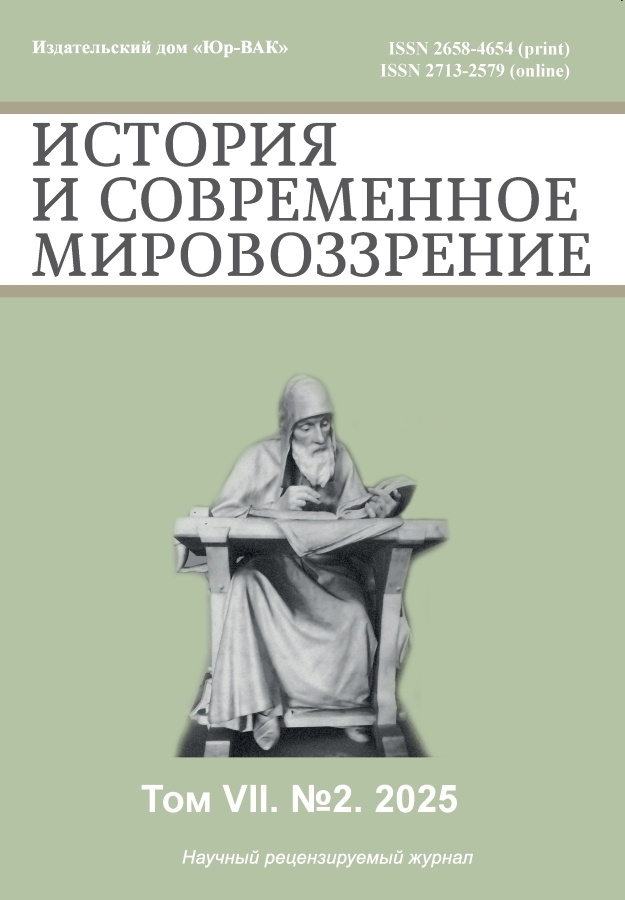Assessment on the Impact of Human Rights Organizations in the Development of Education in Nigeria
- Авторлар: Ogbuji P.C.1
-
Мекемелер:
- Peoples’ Friendship University of Russia named after Patrice Lumumba
- Шығарылым: Том 7, № 2 (2025)
- Беттер: 133-137
- Бөлім: DEBATING ISSUES OF GENERAL HISTORY AND INTERNATIONAL RELATIONS
- URL: https://journals.eco-vector.com/2658-4654/article/view/688830
- DOI: https://doi.org/10.33693/2658-4654-2025-7-2-133-137
- EDN: https://elibrary.ru/MKOHPS
- ID: 688830
Дәйексөз келтіру
Аннотация
This paper examined the contributions of the Society for Human Rights Organization in the development of Education in Nigeria. The research employs a primary data in which 200 questionnaires were administered to respondents to ascertain the public perception of the activities of Human Rights Organization in the Nigerian educational sector. The descriptive and inferential statistics were used in analyzing the data. The Linear regression analysis was used to analyze the collected data in order to explain the relationships between its variables. The use of the Statistical Package for Social Sciences (SPSS) Version 22 were used to analyzed the result, and also Linear Probability Model (LPM) using OLS as well as Probit and marginal probit to analyze the dependent variables as suggested by Wooldridge (2012). The paper reveal that, there are positive impacts of these organizations, and suggest their continued engagement in Nigeria which is crucial for its educational development.
Негізгі сөздер
Толық мәтін
Авторлар туралы
Patricia Ogbuji
Peoples’ Friendship University of Russia named after Patrice Lumumba
Хат алмасуға жауапты Автор.
Email: patricia.chioma@yahoo.com
postgraduate student, Theories and history of international relations
Нигерия, MoscowӘдебиет тізімі
- Akanni, N. K. (2019). Counter-Insurgency and Human Rights Violations in Nigeria. Journal of Law, Policy and Globalization, 85(-), 15-23.
- Amoah, E., (2006). Human rights in traditional Africa.In Introduction to Human Rights Education. Edited Flolu, J., &Awoyemi, M., Accra-University of Education, Winneba.
- Carpenter, J.; Adedokun, O. 2005. Evaluation of UNESCO support to national EFA planning — Country case study: Nigeria (Final report), Abuja, August 2005.
- Ifere, E. O., Ovat, O. O., Owan, E. J., Chijioke, M. I., Ofem, L. U., Ndome, J. N., Ugbaka, M. A., & Atelhe, A. G. (2023). Perception and criminality of tax evasion in a developing economy [Special issue]. Corporate Law & Governance Review, 5(2), 164–173. https://doi.org/10.22495/clgrv5i2sip3.
- Joseph Nsabe Ndome, Lekam Ujong Ujong, & John Okri Inyang (2022). External Debt, Institutional Quality and Economic Development in Nigeria. Nigerian Journal of Social & Development Issues, Volume 10 (Special Edition), A Publication of Faculty of Social Science, University of Calabar, Calabar–Nigeria.
- Ofem Lekam Ujong (2014). Defeating the Poverty Cycle in Nigeria through Innovation and Industrial Revolution. International Journal of Scientific and Research Publications, Volume 4, Issue 7, 1 ISSN 2250-3153.
- Ogunode, Ayeni, Ogwuche (2023). Contribution of International Organizations to the Development of Education in Nigeria, Jurnal Ilmiah Pendidikan Holistik (JIPH), Vol. 2, No. 4, 2023: 345-356
- Sofoluwe, A. (2012). Human Rights and Quality Education in Nigerian Primary Schools. Academic Research International, Vol. 2 Nо. 3.
- https://nigeria.savethechildren.net/what-we-do/education.
- Word Bank. (2018). The global partnership for education and the Word Bank: The facts Retrieved from http://www.worldbank.org/en/topic/education/brief/the-global-partnership-for-education-and-the-world-bank-group-the-facts.
Қосымша файлдар








